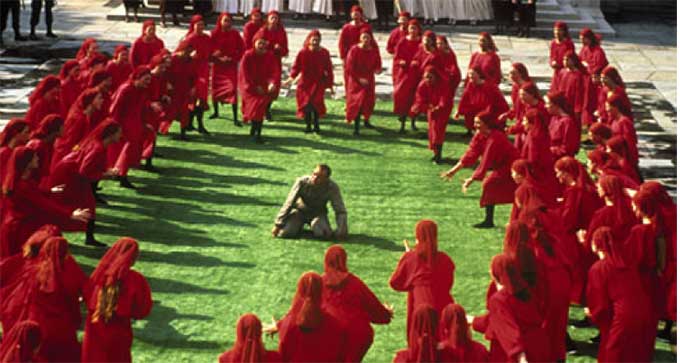
Day by day we are told how men, society, nature, and in some cases even women themselves conspire to keep women down and out. To convince yourself of this fact, all you have to do is open Google. Just plain old Google; no AI needed. Next, type in some combination of men, women, and any bad thing you can think of. Here are just a few examples picked more or less at random from the Net in the course of a couple of hours’ work.
*
“Women remain grossly underrepresented in decision making forums related to conflict prevention and peace-building” (UNFPA, 13-15.11.2001).
“Women Suffer More than Men” (Live Science, 6.7.2005).
“Natural disasters lower the life expectancy of women more than that of men. In other words, natural disasters (and their subsequent impact) on average kill more women than men or kill women at an earlier age than men.” (“The Gendered Nature of Natural Disasters,” Journal of the Association of American Geographers, 97, 2007, 3).
“Globally, women are more vulnerable to… economic shocks” (UNAIDS, 2012).
“Why is depression more prevalent in women?” (Journal of Psychiatry and Neuroscience, July 2015).
“Genders experience pain differently, and women have it more” (The Conversation, 9.12.2015).
“Recent evidence suggests that biological factors, such as the variation in ovarian hormone levels and particularly decreases in estrogen, may contribute to the increased prevalence of depression and anxiety in women” (ibid).
“Women are twice as likely to suffer from severe stress and anxiety as men” (New York Times, 11.14.2018).
“Women suffer needless pain because almost everything is designed for men” (Vox, 22.9.2019).
“Almost 90% of Men/Women Globally Are Biased Against Women” (UNDP, 5.3.2020).
“Myalgic encephalomyelitis/chronic fatigue syndrome (ME/CFS)… occurs 1.5 to 2 times as often in women as in men. (Center for Disease Control and Prevention, 20.5.2020).
“How Patriarchy and Capitalism Combine to Aggravate the Oppression of Women” (CADTM, 28.5.2020).
“College Classrooms Are Still Chilly for Women” (Dartmouth News, 27.1.2021).
“Why Nearly 80 Percent of Autoimmune Sufferers Are Female” (Scientific American, 21.9.2021).
“Inflation affects women more than men” (World Economic Forum, 2022).
“Societal prejudices against those with mental illness may more significantly impact female patients with schizophrenia” (General Psychiatry, 2022; 35(4).
“Across the globe, women and girls are particularly vulnerable in times of war” (Georgetown Law, April 2023).
“Not a single country in the world has achieved gender equality” (Global Citizen, 24.11.2023).
“Women are more likely to want a job but not to have one” (ILOSTAT, 14.3.2024).
“Women in the developing world face dire job prospects” (ibid).
“When a woman does not know how to sell herself, her place will be taken by a man” (Ynet, Israel, 6.4.2024).
“ How the climate crisis fuels gender inequality” (CNN World, 9.4.2024).
Needless to say, it would never occur to me to doubt any of these and a zillion similar statements. Without exception, all are based on exhaustive research honestly presented sine studio et ira. Still I’d like to add a question of my own. Granted that men, society, nature and, on occasion, even women themselves conspire against poor, helpless, witless women unable to stand up for themselves. In that case, how come that, in practically all contemporary societies from Afghanistan up (or down), they enjoy a longer life expectancy than men do?
The answer—pssst, don’t tell anyone!—is: They are defended and supported by those bad, bad creatures who hate them so much. Men.

